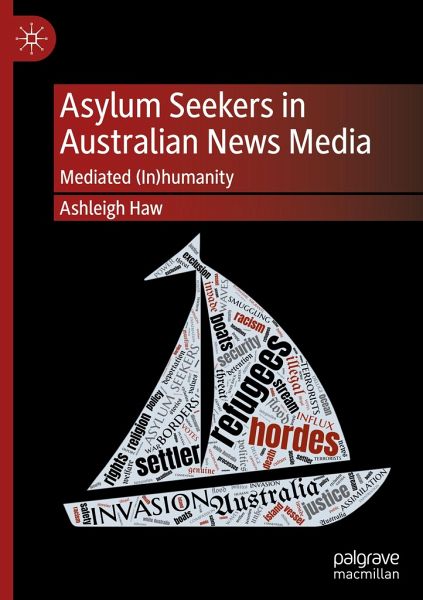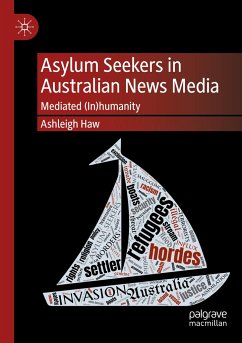
Asylum Seekers in Australian News Media
Mediated (In)humanity
Versandkostenfrei!
Versandfertig in 6-10 Tagen
98,99 €
inkl. MwSt.
Weitere Ausgaben:

PAYBACK Punkte
49 °P sammeln!
This book sheds light on how the public engage with, make sense of, and discursively evaluate news media constructions of people from asylum seeking backgrounds. As a case study, the author discusses her recent research combining Critical Discourse Analysis with a cultural studies Audience Reception framework to examine the perspectives of 24 Western Australians who took part in semi-structured interviews. During their interviews, participants were asked open-ended questions about: their general views on people seeking asylum, including Australia's policy responses, their media engagement habi...
This book sheds light on how the public engage with, make sense of, and discursively evaluate news media constructions of people from asylum seeking backgrounds. As a case study, the author discusses her recent research combining Critical Discourse Analysis with a cultural studies Audience Reception framework to examine the perspectives of 24 Western Australians who took part in semi-structured interviews. During their interviews, participants were asked open-ended questions about: their general views on people seeking asylum, including Australia's policy responses, their media engagement habits and preferences, and their views concerning how the Australian media represents people seeking asylum. The author compares and contrasts this research with broader interdisciplinary discussion, and the book will therefore appeal to students and scholars of migration, political communication, sociology, audience reception, critical media studies and sociolinguistics.














